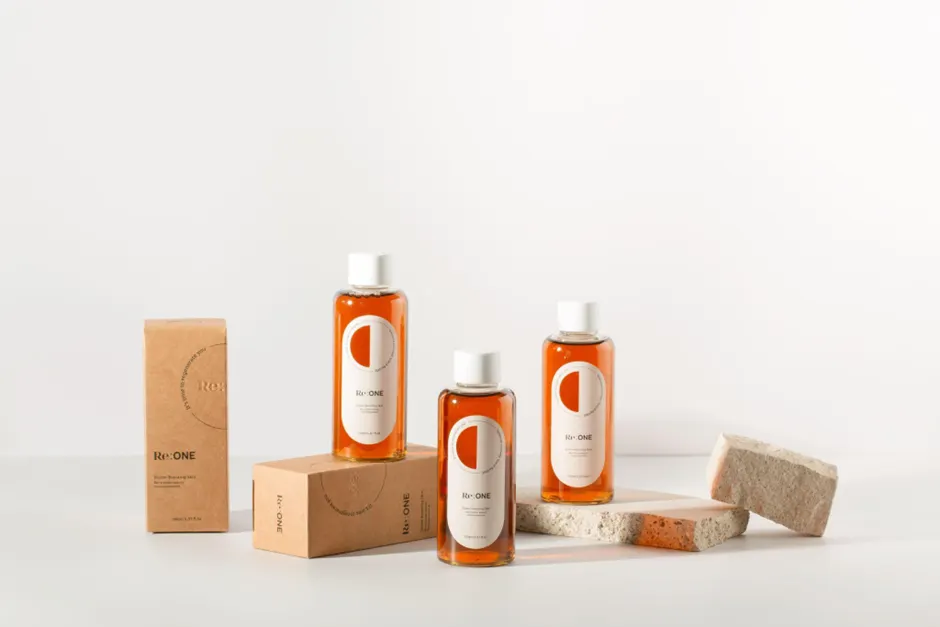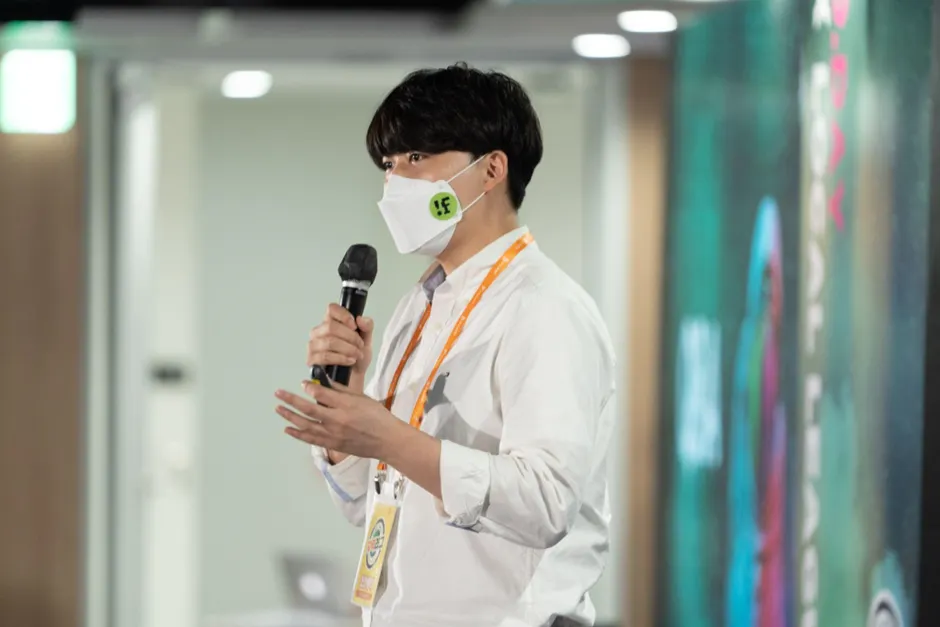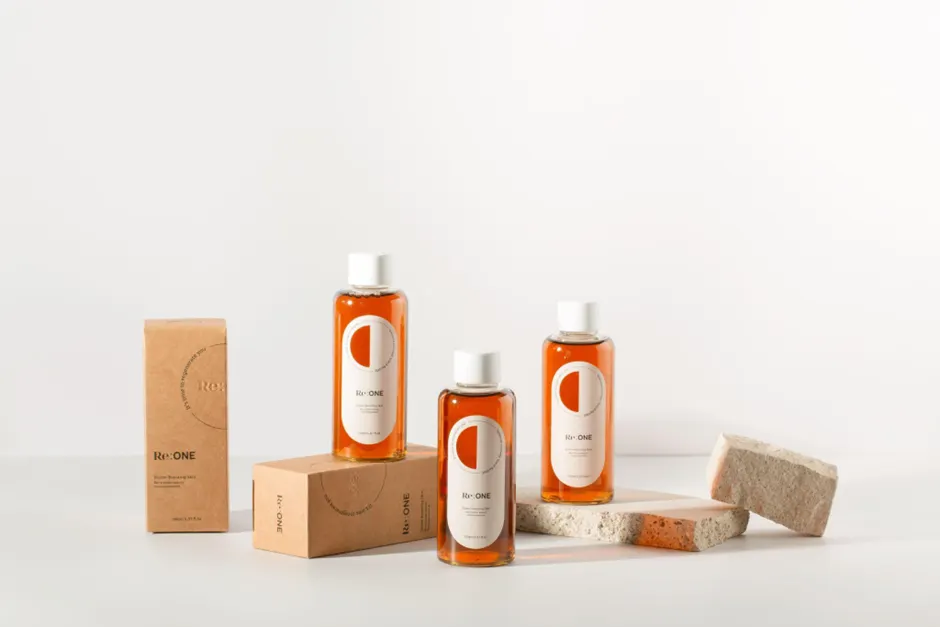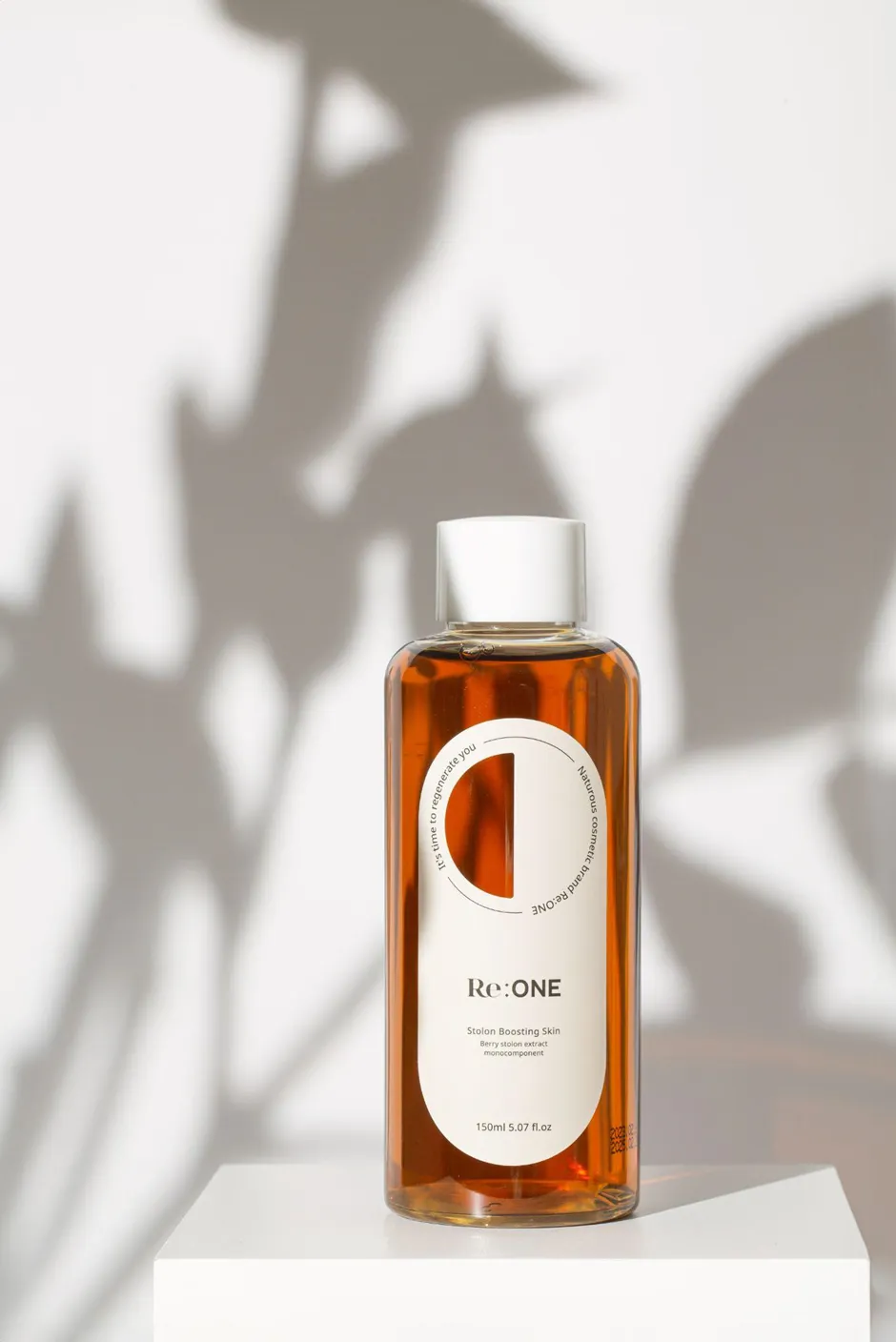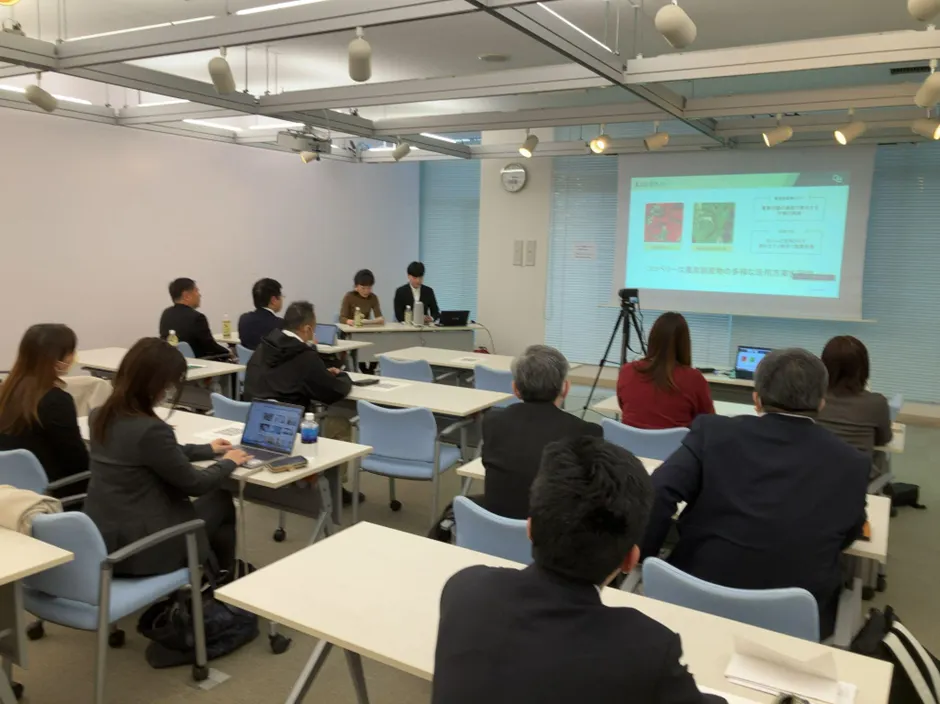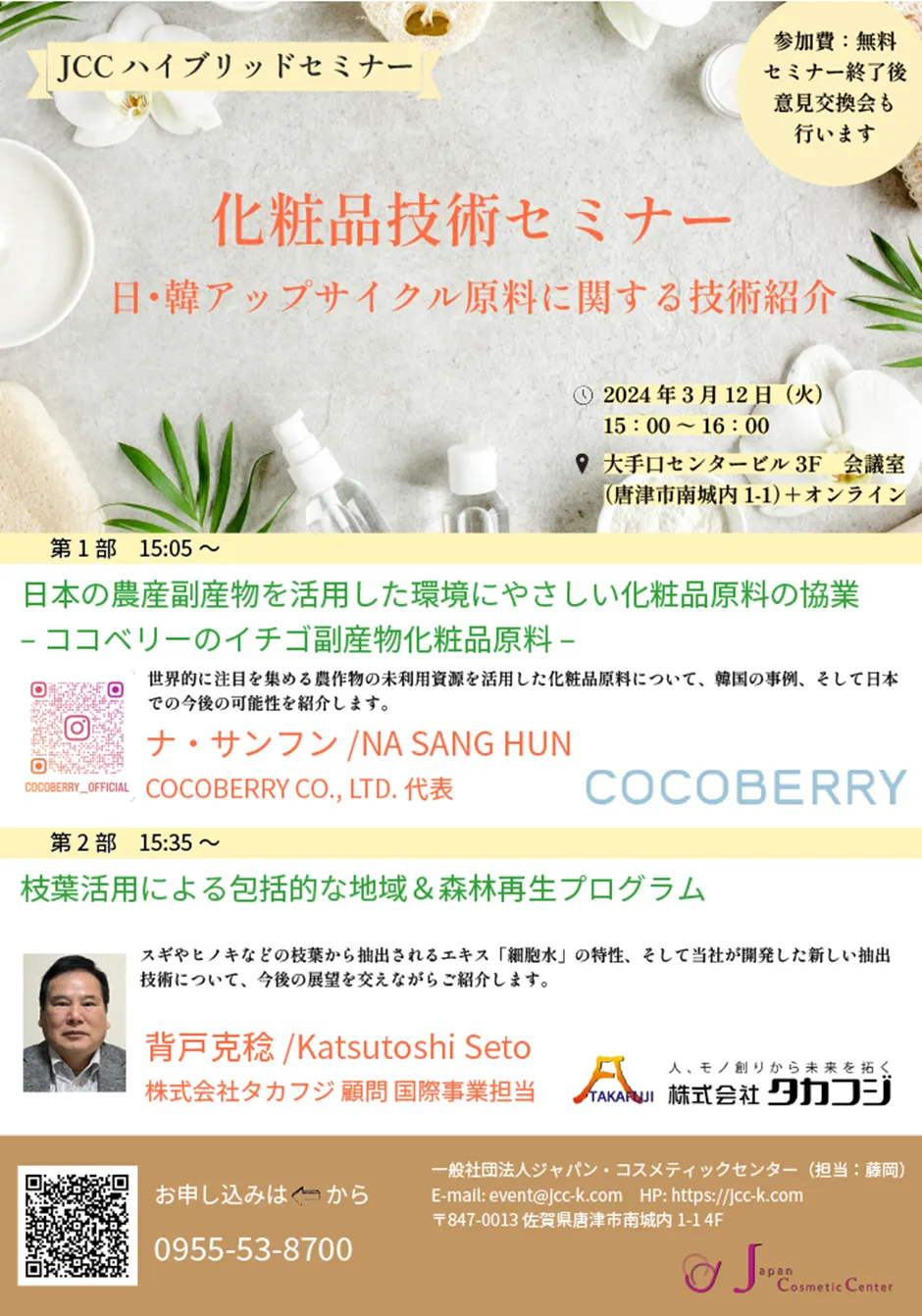Cocoberry is a startup that develops cosmetics using agricultural by-products. The company has developed cosmetics using strawberry stems discarded by farms! Starting with strawberries, Cocoberry has discovered the hidden antioxidant properties in various by-products, including watermelon, to produce eco-friendly products. Based on its diverse experiences, from raw material extraction to product commercialization, the company is actively working with Japanese governmental institutions and business partners, growing its presence in the global market!
Here begins the story of CEO Sang-Hoon Na and Cocoberry’s journey in Japan!
(Photo provided by Cocoberry) CEO Sang Hoon-Na
Q. Could you briefly introduce Cocoberry's services?
We supply sustainable ingredients to cosmetic manufacturers and have launched the Cocoberry brand to promote and sell products made with these ingredients.
Q. What was the reason for your decision to expand globally?
The turning point came when we participated in the d·camp Global Program. Through this program, we learned from embassy officials in India and Central Asia, as well as JETRO (Japan External Trade Organization), that there is significant interest in the processing and utilization of agricultural by-products in the global market.
In particular, JETRO provided information on local governments in Japan where Cocoberry could potentially enter the market. We realized that the global market, where there is more interest in our sustainable products and solutions, would be more advantageous compared to the relatively less interested Korean market. This realization led us to prepare for global expansion.
Q. What was the reason you found the Japanese market most attractive?
Additionally, Japanese consumers are more diverse compared to those in Korea, offering a wider range of markets. Our research indicated a high interest in sustainability and environmental protection among Japanese consumers. For example, we started selling strawberry leaf toner on Amazon Japan, and it sold well without reviews or marketing.
The high level of interest from the government, policies, and consumers in sustainable solutions and products made the Japanese market the most attractive to us.
Q. What are the advantages and disadvantages you have experienced while doing business in the Japanese market?
For Cocoberry to initially enter the market, we needed to start with farmers and local governments, so we sent cold emails. I was pleased that we were able to engage with institutions more quickly than expected.
I used the 'Contact Us' section on the websites of Japanese local governments to leave a brief two-line introduction about Cocoberry and request contact. The next morning, we received a phone call requesting a video meeting, which felt faster than in Korea.
However, after that, we didn't hear back for about seven months, and a scheduled seminar was canceled and postponed. It was four months later when we finally received confirmation for the seminar.
Looking back, I felt that the delay reflected a careful approach to building and maintaining relationships. Since these relationships were established through a thorough internal verification process, I expect that we will be able to maintain close cooperation moving forward.
Q. Could you explain about Cocoberry’s current activities in Japan?
Q. Could you introduce Cocoberry's current activities in Japan?
Cocoberry's business stage in Japan is at the initial stage, where we are promoting to farmers, institutions, companies, and consumers. With the help of local governments and institutions in Japan, we have participated as speakers in seminars.
These seminars introduced upcycling materials technology from both Korea and Japan. It was an event aimed at sharing the progress and current status of upcycling materials by various companies and supporting the creation of new value and business opportunities through collaboration.
(Photo provided by Cocoberry) Seminar in Japan
(Photo provided by Cocoberry) The seminar poster
This seminar provided an opportunity to introduce Cocoberry in Japan, and we have received collaboration requests from Japanese companies, leading to regular meetings.
Specifically, we are selling cosmetics made with Cocoberry's agricultural by-products to consumers and gathering feedback.
Q. What is Cocoberry currently focusing on and what are its future goals?
When our first video conference was scheduled, I carefully studied the websites of the Japanese local governments and institutions to understand their needs and think about how to make them want to collaborate with Cocoberry. This effort helped us create effective meeting materials and leave a good impression during our first video conference.
We intend to maintain this mindset as we focus on our business in Japan. Our next goal is to establish a Japanese subsidiary, attract investments, and collect and process agricultural by-products in Japan to supply cosmetic ingredients and cosmetics. We hope you will continue to show interest in Kokoberry's journey into the Japanese market. :)

